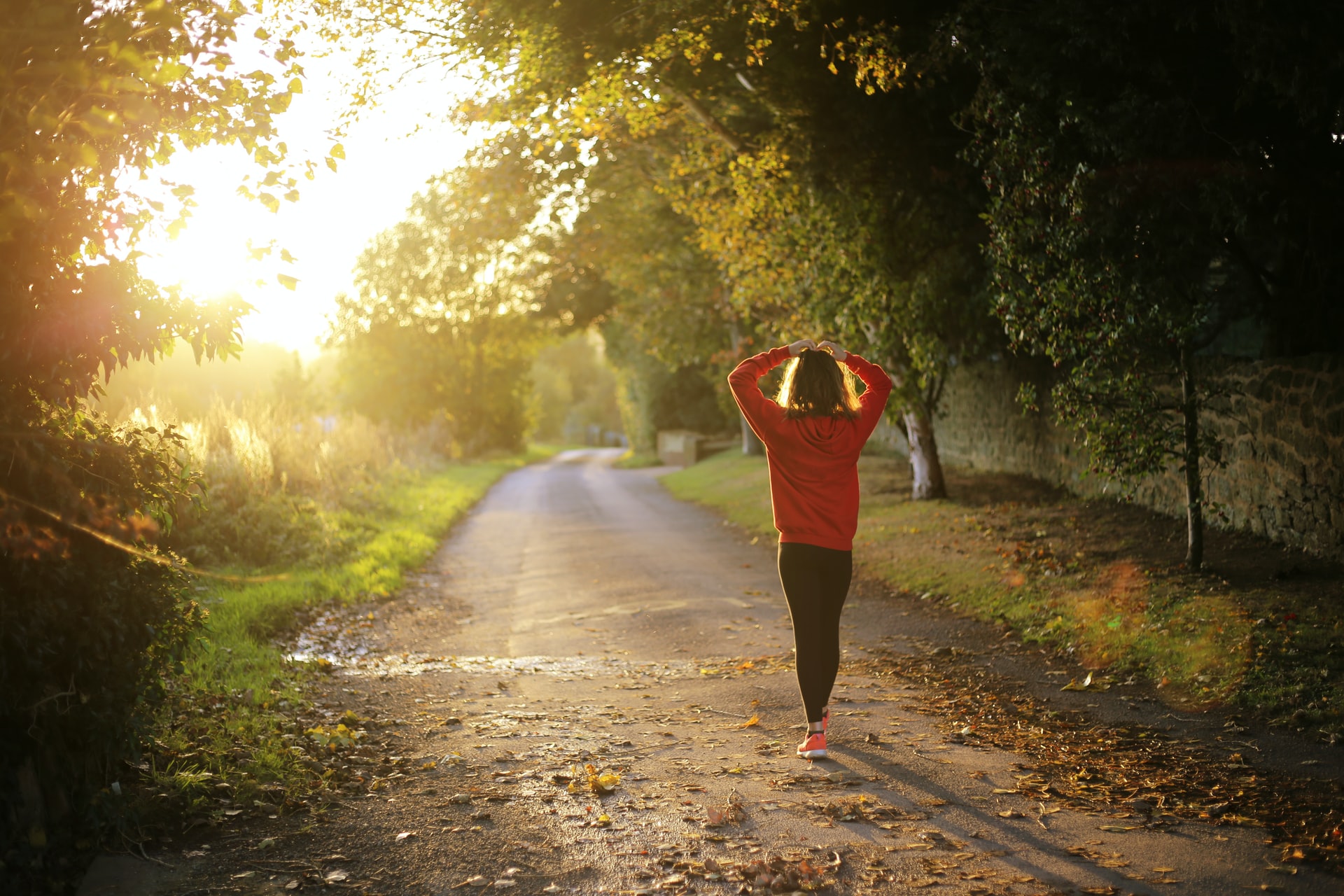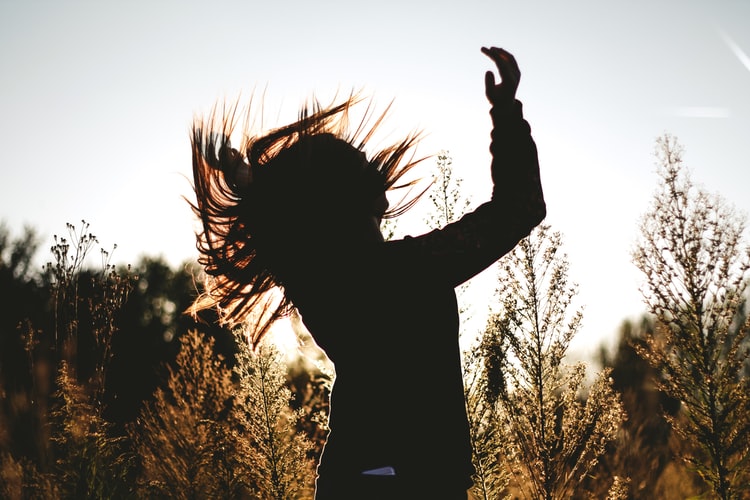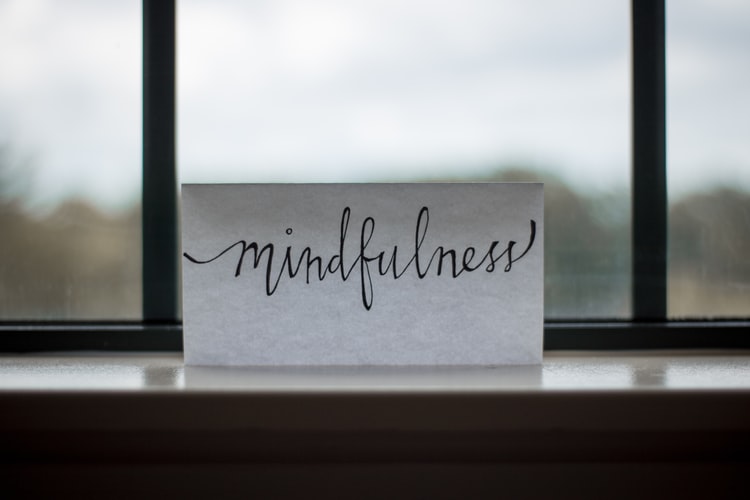

Many of us are currently experiencing high levels of anxiety and worry due to the current Coronavirus pandemic. A recent study by Public Health England revealed that (53.1%) of respondents said it was affecting their well-being and nearly half (46.9%) reported high levels of anxiety,

It is undoubtedly more important than ever to be active right now, both for our physical health but also for our mental well-being. There is a proven link between exercise and mental health, with physical activity having positive impact on many aspects of our well-being.
Did you know that exercise and physical activity can:
· Boost mood
· Relieve stress and anxiety
· Raise self esteem
· Improve memory
· Help with sleep
· Reduce the risk of depression
It was good to see that in research carried out by Sport England the majority of people (65%) believed exercise is helping them with their mental health during the outbreak. However, even though most of us know that exercise is good for us, if you are feeling stressed and anxious or low in mood already, it can be hard to get motivated to go for a run, or do a home workout - especially if you didn’t do much exercise before lock down.
We’ve put together our advice for getting moving for your mental health.
If you have a particular mental health issue or health condition we recommend you read this advice from Mind before you start https://bit.ly/BeforeYouStartMIND
If you need further help or support with any aspect of your mental health, follow the links at the end of the article.

Getting Motivated
Find what you enjoy doing to make physical activity something that you look forward to rather than a chore. (For more on this see https://bit.ly/HowtogetfitOYL )
Love music? why not try dancing in your kitchen every evening before you make dinner (uplifting music also has a proven effect on raising mood). If you like nature, try getting active with some gardening, or see what wildlife you can find on a daily walk, and maybe you’ll be encouraged to walk a bit further than usual. Doing some spring cleaning, or a DIY project can also get you active, and you’ll also feel a sense of accomplishment when you’ve finished. Active play with children or your dog also counts.
The Chief Medical Officer recommends adults get around 150 minutes of moderate physical activity a week, or around 20 – 30 minutes a day. Moderate means you should feel slightly out or breath and warmer doing that activity. However, the good news is that everything counts, and if you start off small you will probably find you want to do more and more.
Once you’ve got into the habit of being more active, you could try setting yourself realistic and achievable goals.

Any form of exercise can be great for your mental health, but research shows that if you are mindful when you exercise this can have even better results. What does being mindful mean? Simply put your full attention on the exercise you’re doing and what’s happening in the present moment. If you are going for a walk you can focus on your surroundings, noticing flowers, clouds in the sky, and the sun on your face. If you are running, try to focus on the sensation of your feet touching the ground. This should help keep you from worrying.
Some forms of exercise such as yoga and Tai-chi encourage attention to the body and breathing, which can be very beneficial for anyone feeling anxious. If you are finding it hard to sleep, a bedtime yoga session can help you relax, relieving any tension from the day and allowing you to get a better night’s rest. Try this bedtime yoga session by Yoga with Adrienne.
There are still ways you can feel supported and encouraged to exercise, even if you aren’t able to do group exercise classes or workout with friends at the moment.
Try exercising with the people that you're living with to encourage each other. If you’re social distancing on your own, why not team up virtually with a friend - try the new ‘Mayathon’ app which invites you to buddy up with someone, and encourage each other to do 26 minutes of exercise a day. Or, give a live streamed Facebook exercise class a go – if you know you are doing an exercise session at the same time each day or week, you’re more likely to give it a go.
There are also lots of apps available that can help support you to get active, try the Active 10 app for walking or the Couch to 5k app if you’d like to start running. For a list of more apps and online workouts visit https://activelincolnshire.com/stay-active-covid-19/
One You Lincolnshire also have some great pathways and Move More clients get access to online sessions, face to face support and tele-coaching for more see https://www.oneyoulincolnshire.org.uk/lincolnshire-residents

Be Kind to yourself
Celebrate your achievements, however small, maybe keep an exercise diary to keep track of what you are doing, and how it makes you feel.
Reward yourself when you’ve done well, or achieved your exercise goals, maybe enjoy a bubble bath or that new Netflix series you were meaning to watch.
Finally, don’t beat yourself up if you aren’t feeling up to exercising. Ditch the negative voice in your head, there’s no need to feel guilty if you miss a day of a new exercise regime or don’t quite make the goal you set yourself, instead start afresh the next day.
For further advice on looking after your mental well-being during the Coronavirus outbreak visit the NHS Every Mind Matters Site. https://bit.ly/EMM-NHS
Sources /further reading
Active Lincolnshire
April 30, 2020